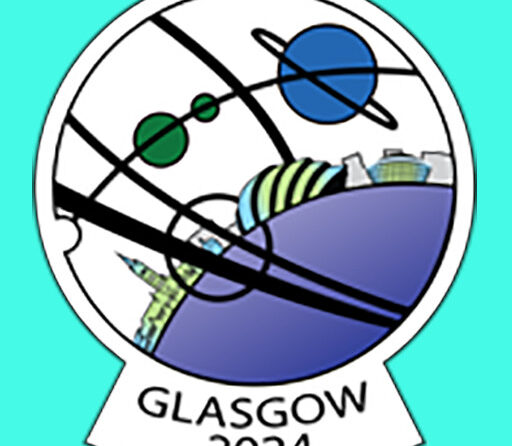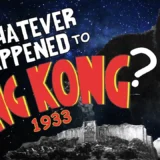
OBIR: Occasional Biased and Ignorant Reviews reflecting this reader’s opinion.

JUST LIKE BEING THERE – by Eric Choi
Publisher: Springer, Cham, Switzerland, 2022
Cover Art – by Sergey Nivens
NOTE: All stories in this collection are by Eric Choi
PREFACE:
Review:
Eric is not a prolific writer. He has written and published just nineteen stories. I suspect the main reason is that he is a busy aerospace engineer who, among other things, has worked on “a number of space projects including the Quantum Encryption and Science Satellite (QEYSSat), the Meteorology (MET) instruments on the Phoenix Mars Lander, the Canadarm2 manipulator on the International Space Station, the RADARSAT-1 Earth observation satellite, and the Measurements of Pollution in the Troposphere (MOPITT) instrument on the Terra satellite.” In addition, he was one of the top 40 finalists (out of 5,351 applicants) in the Canadian Space Agency’s astronaut recruitment campaign in 2009.
In sum, if you like tech-based hard-science fiction, Eric knows what he is writing about.
FICTION:
Dedication
Premise:
Human beings finally visit the Viking One probe where it landed on Mars in 1976.
Review:
It’s in pretty good condition, other than being layered in dust. A sample is taken of its tubing in order to study the effects of the Martian environment over decades of time, a dedication plaque placed alongside, and then the four astronauts get into their rover to drive back to base. Naturally, something goes wrong.
This is a classic case of experienced, knowledgeable scientists frantically attempting to come up with a solution to an unsolvable technological conundrum. Time is undeniably important. A second wasted thinking is another step toward inevitable death. Therefore, think faster!
An amusing sidelight is that one of the scientists doesn’t get any of the ancient pop-culture references the others insist on using. “E.T.” for instance, or “Buck Rogers.” Essentially he considers his fellow astronauts to be shallow-minded, frivolous morons outside their area of expertise. They, keen on the history of space exploration and its interaction with the science fiction of the past, consider him a literal-minded stick-in-the-mud. Of course, none of this matters in light of their problems, the characters concentrate on the matter at hand, but it is a nice, light-hearted touch that helps bring the characters alive and match their realism to that of their conundrum.
No stereotypical “bafflegab” tech talk in this story. It’s all hard science, and believable characters add to the veracity. What self-doubts the scientists keep to themselves are the sort that scientists would be prone to. No generalized angst in this story. Everything strikes the reader as authentic. A pleasure to read.
Raise the Nautilus
Premise:
Captain Nemo’s deliberately scuttled submarine has finally been located by the British. They hope to raise her in order to recover any and all advanced weapons systems still on board.
Review:
After all, the Great War is at a stalemate. Superior weapons are needed to turn the tide. The Germans probably think so, too. What if they try to intervene? Or sabotage the expedition? If they can’t have the Nautilus, they may seek to destroy it. Raising it from the ocean bottom may not be the only problem the expedition faces.
Taking for granted the existence of the sunken Nautilus is a wonderful idea. No need to add on steam-punkish science or scientific bafflegab. Everything is straightforward and faithful to the technology and mindset of the historical era. What makes it science fiction is the question of what is at stake, possession of the products of Nemo’s genius, and the alternative history concept of winning the war as a consequence of this.
Even better, the ending of the story goes beyond assumptions raised by the premise. It offers a sophisticated resolution revealing just how mindbogglingly devious strategists can be then or in any other era. Nothing is ever what it seems. Only victory counts. And choosing the obvious path is not the only way to win. This story is a useful reminder, and one fully in keeping with the historical background. Dashed clever, that.
The Son of Heaven
Premise:
Tsien Hsue-shen, born in China in 2011, emigrated to America at age 23, studied at MIT, then became one of the world’s leading rocket scientists. In 1950 the FBI accused him of being a communist and had him deported back to China. The modern Chinese space program, including their ballistic missiles, is largely the product of his genius. But what might have happened if he had left America and gone somewhere other than China before his arrest?
Review:
The true story is a good example of how hysterical paranoia can sabotage a nation’s own best interests. The word “idiotic” springs to mind. This alternative tale, assuming some intelligent decisions on the part of the new county’s government, indicates an optimistic what-might-have-been future for Tsien and his new host nation.
Ah, if only important government decisions could be made objectively without being subject to the average politician’s obsession with finding scapegoats to placate their constituent’s worst fears. This catering to temporary faddish concerns often casts politicians in the role of saboteurs rather than patriots, much to the despair of long-term strategic planners. It’s one of the flaws inherent in many democratic countries today.
This story offers a clear warning. But, at the same time, it is a charming “what-if?” story which suggests logic and intelligence offer solutions if only we choose to use them. One can hope.
From a Stone
Premise:
The first astronauts to walk the surface of an asteroid begin exploring. The last thing they expect to find is evidence of alien intelligence.
Review:
I love, absolutely love, this kind of science fiction story. The discovery of derelict alien artifacts and subsequent attempts to puzzle out their meaning I always find enthralling. Hence the fondness I have for Frederik Pohl’s GATEWAY series. This story had my total attention once I realized what was going on.
Two things make this story credible. First, the hesitancy of the authorities back home to authorize the astronauts to go all out in their investigative efforts, due to the constraints of the limited time available before orbital requirements dictate their blasting away to return to Earth. That the astronauts desire to exceed their instructions is perfectly understandable, but dare they?
Second, and most important of all, given the amount of time the asteroid has been “waiting” to be discovered, what type of artifact could survive that long and still be recognized as such? The solution is elegant in its simplicity, and as “realistic” as proper attention to hard science and real science can produce. I congratulate Eric on the perfection of his logic.
This is a gem of a story. Crystal clear and precise. As genuine a first contact story as can be imagined.
The Coming Age of the Jet
Premise:
The world’s first commercial jet Airliner was the British Comet. The second was Canada’s Avro Airliner. Alas, the Canadian government killed the project in order for the Avro company to concentrate on “Clunks,” as the CF-100 jet fighter was affectionately known. But what if history had turned out differently?
Review:
This is a very Canadian story. Typically, the Federal government is usually its own worst enemy as far as the interests of the nation is concerned. But what if a legendary Canadian aviation pioneer, idiosyncratic and progressive-minded as he was wont to be, took it into his head to force the government to change its mind? All sorts of intriguing possibilities would have opened up. This story is, in effect, the equivalent of a Canadian wet dream. It is almost pure fantasy… and yet, and yet… grounded on circumstances and personalities that could have made the dream come true, if only…
The history of Canada includes triumphs and accomplishments. It is also a litany of missed opportunities. This is one of those opportunities set right. Definitely a feel good story. At least, for us Canadians.
I can think of others. For example, what if the British Empire had bought Alaska from the Russians instead of the Americans? Alaska would now be a province of Canada. Would that be a benefit? Or a burden?
Part of the Canadian character is wishful thinking about what-might-have-been. This story fits right in to that trait. Nothing tentative about it, however, as it postulates a firm and determined course. The sort of thing we Canadians can do, when ever we manage to make up our minds. Doesn’t happen often, but potential results frequently suggest it should. There’s hope yet, if we can just get our act together.
Crimson Sky
Premise:
Maggie is assigned the task of flying the rescue helicopter to the crash site of the blimp flown by Carl Gablenz, the rich idiot trying to set a new record for manned flight on Mars.
Review:
We all remember the jolly flights of Ingenuity, the plucky experimental helicopter flitting about Mars last year. This story was written seven years earlier, rather boldly detailing what a manned helicopter design would require and some of the difficulties its pilot would face. Now we know for certain a helicopter can function in the Martian atmosphere. Can it be scaled up to man-carrying capacity? In theory, say many aviation engineers. Alas, I’ll probably be dead of old age by the time humans land on Mars, and my grave long forgotten before helicopters and blimps fill the crimson sky. Still, it’s nice to contemplate it will happen some day.
This story is very old-fashioned and very hard science in the sense that the core of the premise, the helicopter itself, is the main character. The story is a concept-driven exploration of what the nature and capabilities of said character is likely to be. For old fans like myself, suffering from a life-long fascination with the Red Planet, it is a delight to read. In a way, justification for our faith in Mars, in that science is slowly revealing what Mars is like and how we can eventually settle there. The “reality” of Mars is being made more and more real as time goes on. This story is a milestone along that path.
I like Mars. I like this story. Simple as that.
CONCLUSION:
Six stories reviewed and nine stories not reviewed. It is to arrgh. I have so many projects on the go it is often difficult for me to budget time according to need. This is one of those times.
Still, the six stories I did review reveal Eric’s habit of writing clean and precise prose examining a wide variety of science fiction conundrums in light of intelligent and logical extrapolation of current scientific knowledge. There are many forms of science fiction, all equally worthwhile, but Eric is a master of the hard science approach. This is classic science fiction at its best. Highly, highly recommended.
Check out JUST LIKE BEING THERE at: < Just Like Being There >
P.S. BY THE WAY:
I won another Canadian Aurora Award for my magazine POLAR BOREALIS. The third year in a row. Wowzers!
Interesting to examine the voting statistics. I was competing in the same category for the columns I’ve written for AMAZING. For those I came in second. Huzzah!
Always nice to be nominated. Always nice to win. Congratulations to all the other winners.










Recent Comments